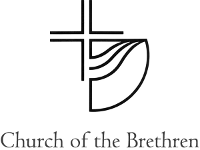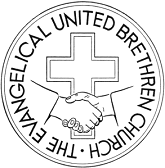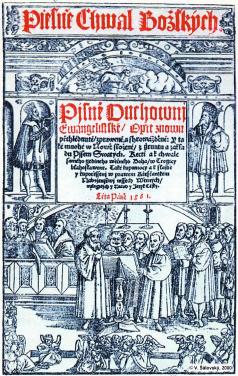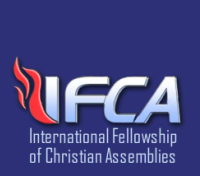Related Research Articles

Mennonites are a group of Anabaptist Christian church communities tracing their roots to the Radical Reformation. The name is derived from that of one of the early prominent leaders of the Anabaptist movement, Menno Simons (1496–1561). Through his writings about Reformed Christianity during the Radical Reformation, Simons articulated and formalized the teachings of earlier Swiss Anabaptist founders as well as early teachings of the Mennonites founded on the belief in both the mission and ministry of Jesus. The original Anabaptist followers had held such beliefs with great conviction, despite persecution by various Roman Catholic and Mainline Protestant states. Formal Mennonite beliefs were codified in the Dordrecht Confession of Faith (1632), which affirmed "the baptism of believers only, the washing of the feet as a symbol of servanthood, church discipline, the shunning of the excommunicated, the non-swearing of oaths, marriage within the same church", strict pacifistic physical nonresistance, anti-Catholicism and in general, more emphasis on "true Christianity" involving "being Christian and obeying Christ" as they interpret it from the Holy Bible.

The Church of the Brethren is an Anabaptist Christian denomination in the Schwarzenau Brethren tradition that was organized in 1708 by Alexander Mack in Schwarzenau, Germany during the Radical Pietist revival. The denomination holds the New Testament as its only creed. Historically, the church has taken a strong stance for nonresistance or Christian pacifism—it is one of the three historic peace churches, alongside the Mennonites and Quakers. Distinctive practices include believer's baptism by forward trine immersion; a threefold love feast consisting of feet washing, a fellowship meal, and communion; anointing for healing; and the holy kiss. Its headquarters are in Elgin, Illinois, United States.

The Evangelical United Brethren Church (EUB) was a North American Protestant denomination from 1946 to 1968 with Arminian theology, roots in the Mennonite and German Reformed, and communities, and close ties to Methodism. It was formed by the merger of the Evangelical Church and the Church of the United Brethren in Christ. The United Brethren and the Evangelical Association had considered merging off and on since the early 19th century because of their common emphasis on holiness and evangelism and their common German heritage. In 1968, the United States section of the EUB merged with the Methodist Church to form the United Methodist Church, while the Canadian section joined the United Church of Canada.

The United Church of Christ (UCC) is a socially liberal mainline Protestant Christian denomination based in the United States, with historical and confessional roots in the Congregational, Restorationist, Continental Reformed, and Lutheran traditions, and with approximately 4,600 churches and 712,000 members.The UCC is a historical continuation of the General Council of Congregational Christian churches founded under the influence of New England Puritanism. Moreover, it also subsumed the third largest Calvinist group in the country, the German Reformed. Notably, its modern members' theological and socio-political stances are often very different from those of its predecessors.

The Old German Baptist Brethren (OGBB) is a Schwarzenau Brethren denomination of Anabaptist Christianity.

The Schwarzenau Brethren, the German Baptist Brethren, Dunkers, Dunkards, Tunkers, or sometimes simply called the German Baptists, are an Anabaptist group that dissented from Roman Catholic, Lutheran and Reformed European state churches during the 17th and 18th centuries. German Baptist Brethren emerged in some German-speaking states in western and southwestern parts of the Holy Roman Empire as a result of the Radical Pietist revival movement of the late 17th and early 18th centuries.

The Brethren Church is an Anabaptist Christian denomination with roots in and one of several groups that trace its origins back to the Schwarzenau Brethren of Germany.
The Brethren in Christ Church (BIC) is a River Brethren Christian denomination. Falling within the Anabaptist tradition of Christianity, the Brethren in Christ Church has roots in the Mennonite church, with influences from the revivals of Radical Pietism and the holiness movement. They have also been known as River Brethren and River Mennonites. The Canadian denomination is called Be In Christ.

The Missionary Church is an evangelical Christian denomination of Anabaptist origins with Wesleyan and Pietist influences.
The Church of the United Brethren in Christ is an evangelical Christian denomination with churches in 17 countries. It is Protestant, with an episcopal structure and Arminian theology, with roots in the Mennonite and German Reformed communities of 18th-century Pennsylvania, as well as close ties to Methodism. It was organized in 1800 by Martin Boehm and Philip William Otterbein and is the first American denomination that was not transplanted from Europe. It emerged from United Brethren churches that were at first unorganized, and not all of which joined this church when it was formally organized in 1800, following a 1789 conference at the Otterbein Church.
The Rosedale Network of Churches is a Christian body of Mennonite churches in the Anabaptist tradition. Rosedale Network of Churches was originally formed in 1910 by a group of Amish Mennonites to promote unity while preserving autonomy of the local congregation.

The Unity of the Brethren is a Protestant church formed in the 1800s by Czech immigrants to Texas, where the church is still based, in the tradition of Moravian Church.

The Church of the Lutheran Brethren of America (CLBA) is a Lutheran denomination of Christians rooted in a Pietist Lutheran spiritual awakening at the turn of the 20th century.

The Mennonite Church USA is an Anabaptist Christian denomination in the United States. Although the organization is a recent 2002 merger of the Mennonite Church and the General Conference Mennonite Church, the body has roots in the Radical Reformation of the 16th century.
The Fellowship of Evangelical Bible Churches (FEBC) is a small evangelical Christian denomination with an Anabaptist Mennonite heritage. Most of the denomination's approximately 5000 members are in congregations located in the U.S. and Canada.
The US Conference of Mennonite Brethren Churches (USMB) is an association of Mennonite Brethren Churches in the United States.

The International Fellowship of Christian Assemblies (IFCA), formerly known as the Christian Church of North America (CCNA), is a North American Pentecostal denomination with roots in the Italian-American community, but is now a multicultural denomination. Central offices are located in Transfer, Pennsylvania. Ministries of the church include Benevolence, Home Missions, FOCUS, Foreign Missions, Education, Lay Ministries, and Public Relations. A convention is held annually, and their official publication is Vista, a quarterly magazine.
The Evangelical Church or Evangelical Association, also known in the late 1700s as the New Methodist Conference and in the early 1800s as the Albright Brethren, was a "body of American Christians chiefly of German descent". It was Wesleyan–Arminian in doctrine and theology, as well as Methodist Episcopal in its form of church government.

The United Church of Christ in the Philippines is a Christian denomination in the Philippines. Established in its present form in Malate, Manila, it resulted from the merger of the Evangelical Church of the Philippines, the Philippine Methodist Church, the Disciples of Christ, the United Evangelical Church and several independent congregations.
Conservative Mennonites include numerous Conservative Anabaptist groups that identify with the theologically conservative element among Mennonite Anabaptist Christian fellowships, but who are not Old Order groups or mainline denominations.
References
- Churches & Church Membership in the United States (1990), Glenmary Research Center
- Encyclopedia of American Religions, J. Gordon Melton, editor
- Handbook of Denominations in the United States (6th ed.), by Frank S. Mead